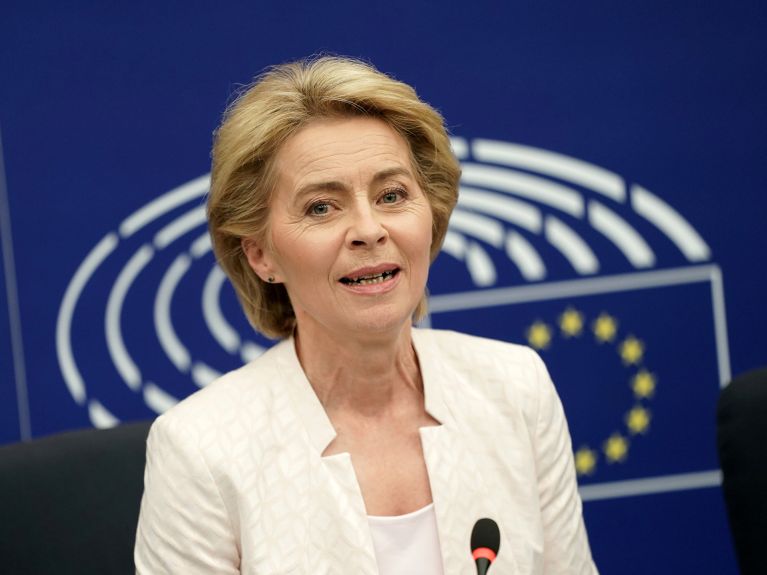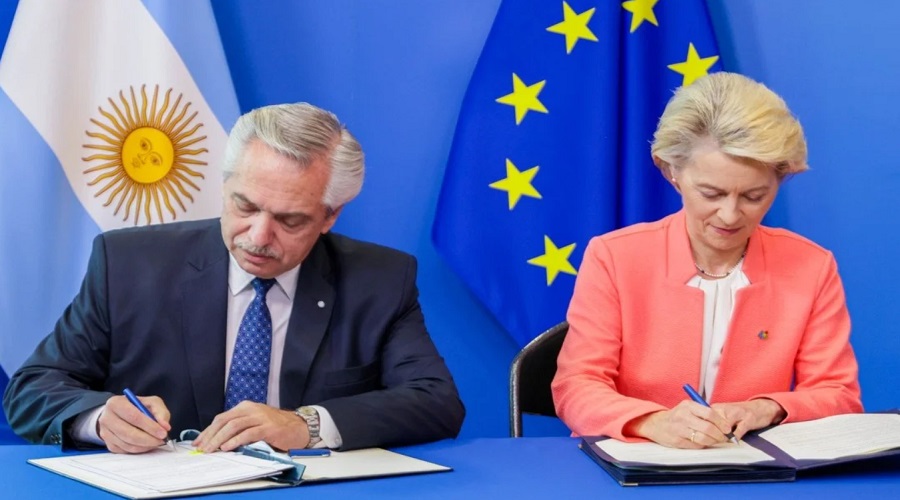President Alberto Fernández and President of the European Commission, Ursula Von der Leyen, today signed a Memorandum of Understanding (MoU) on energy cooperation between the European Union (EU) and Argentina.

The memorandum was signed at the European Union building in Brussels, prior to the start of the III European Union-Community of Latin American and Caribbean States (CELAC) Summit taking place today and tomorrow in the capital of Belgium.
The memorandum, obtained by Télam, consists of a Framework Section outlining the basis of the resolution, as well as ten additional sections.
- In the first point, Argentina and the EU express their intention to cooperate in the areas of hydrogen and its derivatives, renewable energies, energy efficiency, natural gas, and liquefied natural gas (LNG).
- In the second point, they aim to encourage cooperation between public and private sector companies in the fields of hydrogen and its derivatives (utilizing hydrogen and its derivatives in various applications such as industrial processes, transportation, and energy storage), renewable energy (developing secure energy technologies, promoting the expansion and use of renewable energy, and finding solutions related to its integration into the electrical grid and the development of electrical infrastructure), and energy efficiency.
- Next, it refers to the implementation of the agreement regarding investments and a roadmap.
- Then, it addresses aspects of sustainability to ensure that future investments in projects or activities comply with the respective environmental legislations related to marine and land sectors, with specifications regarding environmental damage.
- The seventh section discusses meeting at least once a year to monitor the implementation of the provisions of the memorandum, at a location and date agreed upon, as well as promoting ministerial-level meetings to address strategic issues, including energy transitions.
- The eighth point states that the agreement does not create legally binding obligations or commitments, nor does it entail financial obligations or commitments for each participant. It also clarifies that it does not imply an obligation to provide funds.
- The ninth section refers to confidentiality, whereby each participant agrees not to disclose information received from the other party to third parties without prior written consent.
- The final point clarifies that the memorandum will come into effect on the date of its signing and will continue until they agree that the objectives have been achieved or until one of the parties ceases to participate, providing written notice of such intention to the other participant.
The background of the MoU on energy began on June 21, 2022, during the Argentina-European Union (EU) bilateral energy dialogue held in Buenos Aires.
In the context of the energy crisis triggered by the war in Ukraine, the EU had expressed interest in negotiating an MoU with Argentina on the matter, according to El Economista.
This expression coincided with Argentina’s interest in becoming a sustainable and reliable supplier, not only of food but also of energy, to contribute to the energy transition, sources from the Presidency indicated.
The MoU on energy is an instrument aimed at advancing cooperation between the EU and Argentina to encourage public and private actors to cooperate in achieving clean energy objectives and combating climate change, primarily in the areas of hydrogen and its derivatives, renewable energies, and promotion of energy efficiency.
It is expected to recognize liquefied natural gas (LNG) as a vector in energy transitions and the formulation of a plan for utilizing the transportation infrastructure to accelerate LNG exports and shipments to the EU, the sources added.






